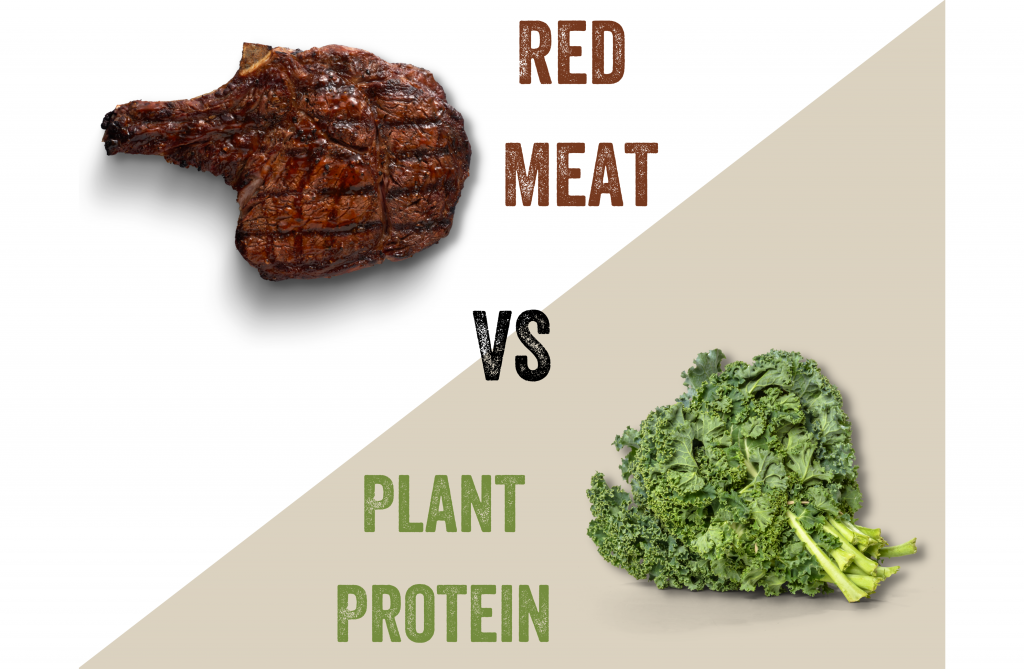
Meat Alternative Products: The Latest Trends and Innovations
In the annals of human history, meat has stood as a culinary cornerstone, providing essential nutrients for health and development. However, this dietary staple comes with a hefty environmental toll and health concerns. With the rise of consciousness about these issues, a seismic shift is occurring as plant-based diets gain traction, promising a sustainable, ethical, and health-conscious future.
Meat’s Impact: A Culinary Tradition with Consequences

Meat, a cultural and historical dietary mainstay, carries a considerable ecological burden. The United Nations underscores that the global livestock sector contributes to 14.5% of greenhouse gas emissions, utilizes 33% of arable land, and consumes 8% of water resources. Beyond environmental repercussions, meat consumption is linked to health risks such as obesity, diabetes, cardiovascular disease, and certain cancers.
The Ascent of Plant-Based Diets: A Multifaceted Trend

In response to these challenges, a notable surge in plant-based diets is reshaping the culinary landscape. Defined by the exclusion or reduction of animal products like meat, dairy, and eggs, plant-based diets are driven by ethical, environmental, health, and religious considerations. A report by GlobalData highlights a remarkable increase of 600% in individuals identifying as vegan, vegetarian, or flexitarian (occasional meat-eaters) in the US, 350% in the UK, and 200% in Germany from 2014 to 2019. Moreover, a survey by Ipsos reveals that 65% of consumers in 28 countries express an intent to consume more plant-based foods.
Unveiling the Benefits: A Triumvirate of Environmental, Ethical, and Health Advantages
Plant-based diets offer a trifecta of benefits that resonate with eco-conscious consumers. They contribute to:
- Environmental Preservation: By sidestepping the resource-intensive and polluting animal agriculture industry, plant-based diets reduce greenhouse gas emissions, land use, water consumption, and pollution.
- Animal Welfare: Avoiding the exploitation and slaughter of animals aligns with ethical considerations, saving lives, reducing suffering, and protecting animal rights.
- Human Health Enhancement: Enriched with fiber, antioxidants, vitamins, and minerals while low in saturated fat, cholesterol, and hormones, plant-based diets promote health, prevent chronic diseases, and potentially extend longevity.
Challenges on the Plate: Obstacles to Widespread Adoption
Despite the promising trajectory of plant-based diets, significant challenges hinder their global acceptance:
- Limited Accessibility: Plant-based food availability remains restricted, especially in low- and middle-income countries, rural areas, and food deserts.
- Lack of Awareness: Insufficient education about plant-based nutrition, health benefits, and environmental impacts persists, particularly among marginalized populations.
- Social Resistance: Societal ingraining of meat consumption poses challenges to social acceptance and support for plant-based eating, hindering widespread adoption.
Paving the Way: Plant-Based Meat Alternatives as Catalysts for Change

To overcome these hurdles and expedite the shift to plant-based diets, innovative solutions are paramount. One such solution lies in the development and promotion of plant-based meat alternatives. These alternatives replicate the taste, texture, appearance, and nutritional value of animal meat but are crafted from plant ingredients such as soy, pea, wheat, or mushroom.
The Plant-Based Meat Market: A Thriving Frontier
The market for plant-based meat alternatives is booming, with global projections anticipating growth from $4.3 billion in 2020 to $8.3 billion by 2025. Recognizable brands like Beyond Meat, Impossible Foods, Quorn, and Lightlife are leading the charge with products ranging from burgers and sausages to nuggets and bacon. Supermarkets, restaurants, and fast-food chains are increasingly incorporating these alternatives into their offerings, amplifying their accessibility.
Hurdles to Overcome: Challenges in the Plant-Based Meat Realm
However, despite the surge in popularity, plant-based meat alternatives face their own set of challenges:
- Cost and Availability: High prices and limited variety hinder access, particularly in developing countries and emerging markets.
- Consumer Skepticism: Low awareness, trust, and acceptance among dedicated meat consumers present obstacles to widespread adoption.
- Health and Ethical Concerns: Some plant-based meat products may raise concerns due to high processing, additives, and artificial ingredients.
Strategies for the Future: Navigating Towards a Plant-Based Tomorrow
To propel the plant-based movement forward, strategic interventions are essential:
- Affordability and Variety: Improving production efficiency, scaling distribution, and expanding product portfolios can reduce costs and enhance variety.
- Education and Communication: Transparent labeling, accurate information, and positive messaging can boost consumer awareness, trust, and acceptance.
- Quality Enhancement: Emphasizing natural, organic, and non-GMO ingredients while minimizing processing and additives can address health and ethical concerns.
The Future of Food: Nurturing Sustainability, Health, and Compassion
Plant-based diets and meat alternatives stand as transformative trends heralding a more sustainable, healthy, and humane food system. Yet, the journey ahead demands collaboration among stakeholders—consumers, producers, retailers, policymakers, and educators—to address challenges and cultivate a paradigm shift. To echo Mahatma Gandhi’s timeless wisdom, “Be the change that you wish to see in the world.”